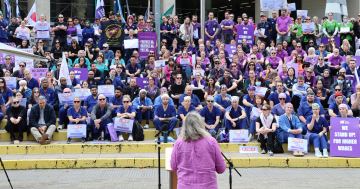 Flexible workers feel better rested, more engaged and have a higher sense of wellbeing than their office-based counterparts, according to new research from the Centre for Work Health and Safety, which has launched a new guide to help organisations support flexible workers.
Flexible workers feel better rested, more engaged and have a higher sense of wellbeing than their office-based counterparts, according to new research from the Centre for Work Health and Safety, which has launched a new guide to help organisations support flexible workers.
Director of the Centre, Skye Buatava said the Study was conducted in partnership with Edith Cowan University and analysed the experiences of 1,039 NSW-based flexible workers throughout the 2020 pandemic lockdown to determine their psychological risk compared with non-flexible workers.
Ms Buatava said the dramatic shift to flexible work caused by the COVID-19 pandemic highlighted the need to ensure the right support mechanisms were in place for modern ways of working.
“Flexible and remote working has of course become common place over the last few years, and during last year’s lockdown we commissioned this Study to investigate how our workforce was finding working from home,” Ms Buatava said.
“It’s reassuring to see that for the most part, working flexibly can be a very positive experience for workers,” she said.
“Flexible workers taking part in the study reported a more positive working environment and lower levels of sleeping troubles.”
Ms Buatava said significantly higher levels of wellbeing were also reported because the workers felt that their organisation prioritised wellbeing and psychological safety.
The Centre’s Director said that, alongside these positive findings, the research also identified some gaps in workplace health and safety support for flexible workers.
“We discovered that some flexible workers felt their organisation did not have adequate work health and safety processes in place and that training around mental wellness was lacking,” she said.
“The shift to flexible work has been dramatic due to COVID restrictions and we need to ensure that businesses have up to date policies and procedures for their workforce, whether in the office or not.”
Ms Buatava said in response to the findings, the Centre launched its A Best Practice Guide for flexible and work-from-home arrangements for organisations with free resources on how to support flexible workers.
She said the Centre also had a suite of training modules and guidance materials with practical advice for employers and employees on creating a mentally healthy workplace at home.
The Centre’s three-page study summary report Flexible working and psychosocial safety, can be accessed at this PS News link and its 40-page Guide at this link.











